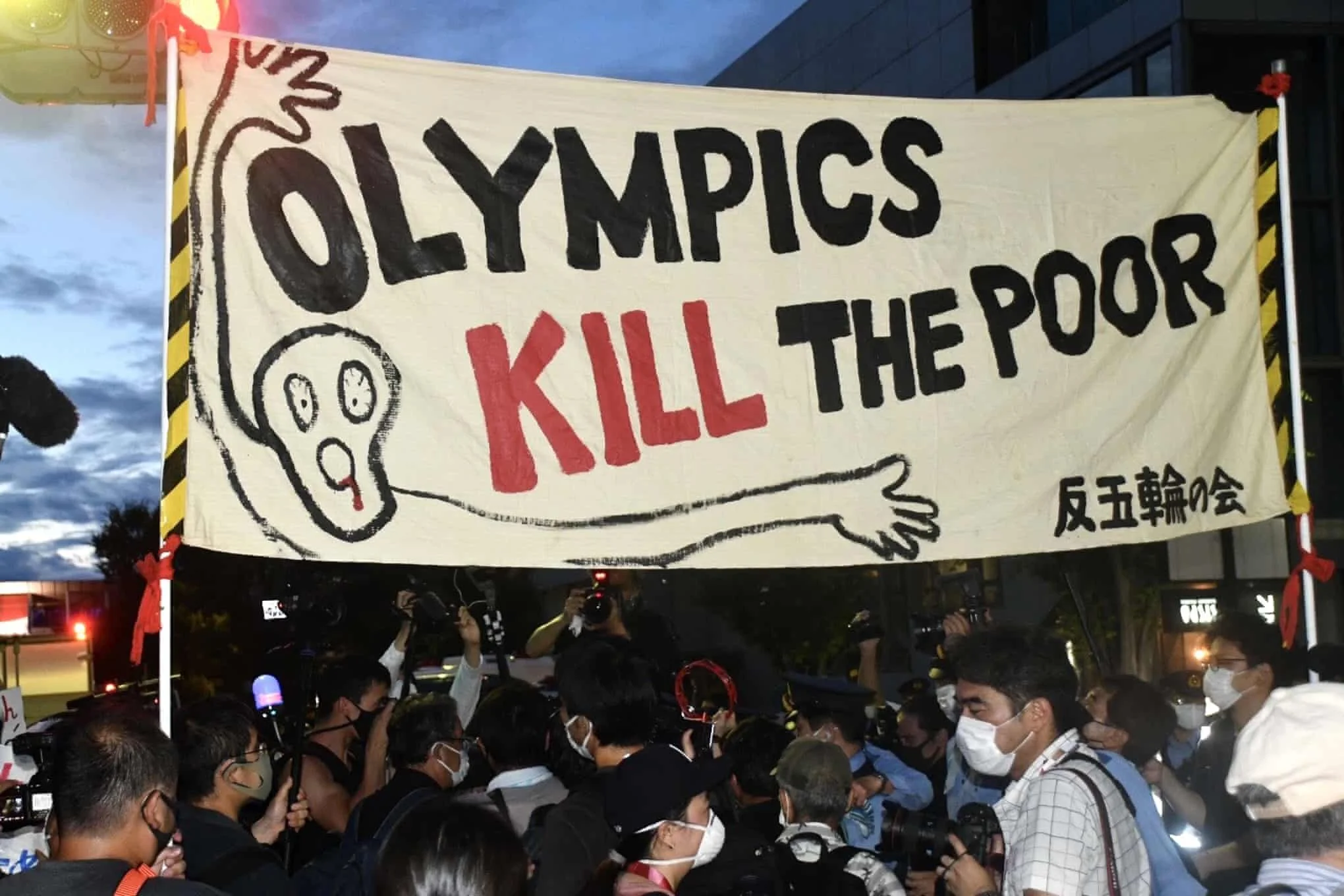Photo by Igor Belyayev/Tass
A few hours after the Japanese tennis star Naomi Osaka lit the Olympic cauldron at the fairly downbeat Tokyo 2020 opening ceremony, a group of about 50 people crammed the backyard of a Los Angeles bookstore to celebrate their own “Nopening Ceremony”.
Under a banner that read “Olympics kill the poor”, local activists and scholars at the Echo Park venue took turns telling stories of Olympic-related displacement and gentrification they had witnessed in host cities past and present. The tales were meant to prompt the local residents in the audience to heed the warning: in a city like Los Angeles, already marked by a large unhoused population and a critical housing crisis, the 2028 Olympics may only exacerbate these problems.
Just as Tokyo 2020 marked the end of the Olympiad, the meeting was the end of a cycle for anti-Olympics groups in Los Angeles, and the beginning of a new one. By their own timeline, they have only a couple more years to close the door on LA 2028. And while the specific strategies are still to be determined, they have not changed their general vision.
“No to the Olympics is no,” said Leonardo Vilchis, co-founder of the tenants group Unión de Vecinos (the Neighbors’ Union). “We are not going to negotiate our defeat. Instead, we will act aggressively to stop things from happening.”
Much of their strategy will be informed by the recent experience of Tokyo, where the International Olympic Committee (IOC) steamrolled opposition from local residents against the event. Under the contract to which the IOC, the city of Tokyo and the Japanese Olympic Committee agreed, people in Japan had no say on whether the event should go forward, nor any power to stop it in a case of changed circumstances, such as the emergence of the Covid-19 pandemic. Up to 83% of respondents in a May 2021 survey by the Asahi Shimbun newspaper said they didn’t want the Games to take place in Tokyo this year, a sentiment mostly driven by the pandemic.
Read more at The Guardian
